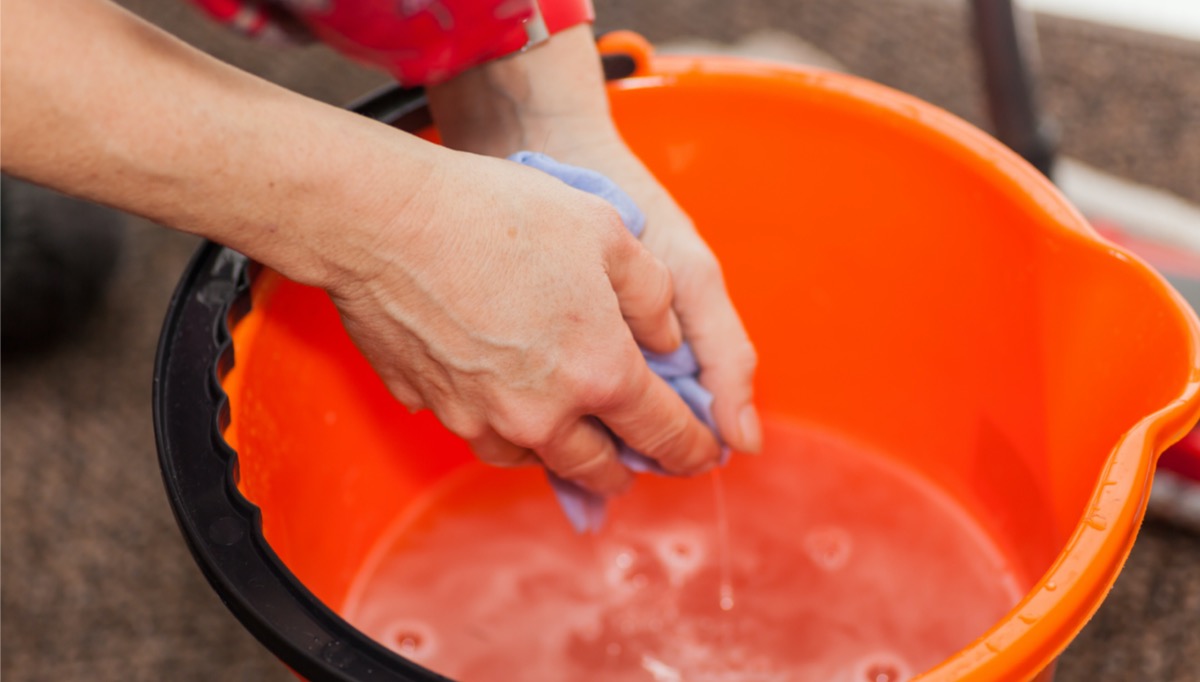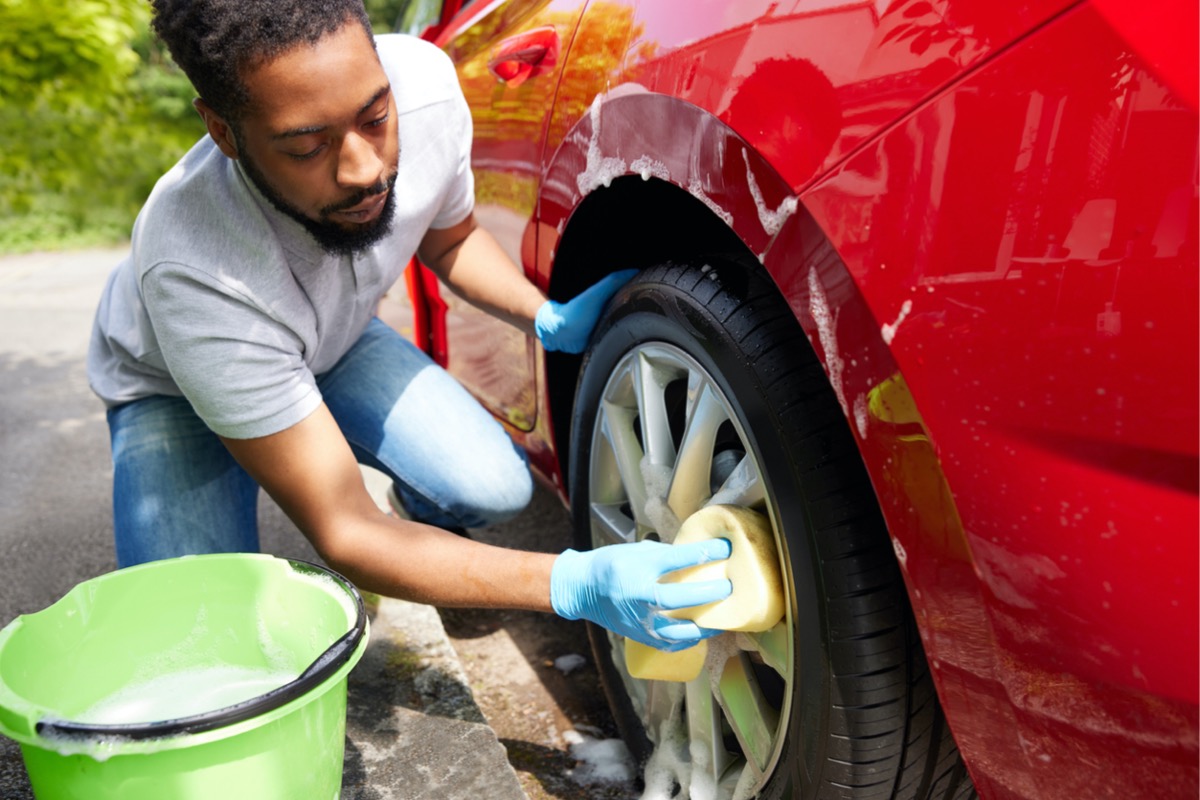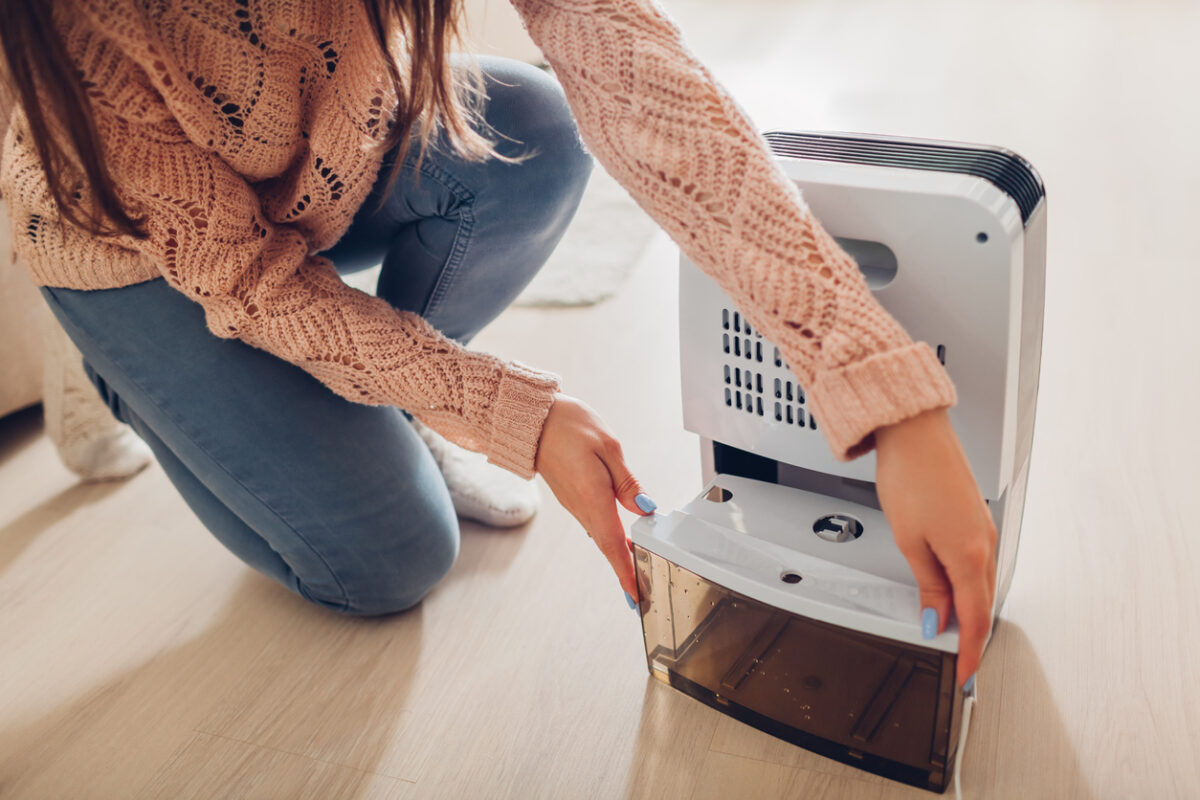We may earn revenue from the products available on this page and participate in affiliate programs. Learn More ›
The average dehumidifier removes 4 to 10 gallons of water from the air each day, most of which gets poured down the drain when the dehumidifier reservoir fills. While that water may be unsafe to drink there are a host of ways to recycle it, ranging from washing your car to watering your plants. Learn how you can safely reclaim the moisture your dehumidifier produces, which can lower your utility bill while you do your part to conserve water.
How Dehumidifiers Collect Water
A dehumidifier gathers moisture by drawing warm air from the room it’s in and circulating it over cooling coils. The coils cause the humidity to condense into liquid, which is then collected in a reservoir. Dirt from the coils and other parts of the dehumidifier make this water unsafe for human consumption, but that doesn’t mean it can’t be used for the alternative purposes listed below.

Water Your Plants
Put the water from a dehumidifier into a watering can and use it to water houseplants or your outdoor garden. Since dehumidifiers typically produce the most water during growing seasons, this is an ideal way to recycle it. Dehumidifier water can contain trace amounts of lead, however: Do not use this water on edible plants, which can soak up those contaminants and raise the presence of lead in fruits and vegetables to dangerous levels.
RELATED: The Best Dehumidifiers for the Home, Tested
Use It for Cleaning
Mix water from a dehumidifier reservoir with soap or one of your favorite concentrated cleaning products and use it for scrubbing floors, dishes, or the bathroom sink. The cleaner will break down or kill any bacteria in the water, so you can rest assured that you won’t be spreading germs from stagnant dehumidifier water around your home as you clean.

Pour It into a Steam Iron
Water from a dehumidifier is actually better for certain steam irons than tap water. Tap water contains minerals that collect on an iron’s soleplate as steam evaporates. These minerals can clog an iron’s water tank and even stain clothes. Because dehumidifier water is condensed from the air, it lacks potentially troublesome minerals. Ironing with distilled water can also save you from spending money on store-bought distilled water. However, only distilled water-safe irons can handle dehumidifier water without corroding, so be sure to consult your iron’s manual first.
Fill the Radiator
Similarly, the lifespan of your car’s radiator can be shortened by tap water mineral buildup. Since dehumidifier water is mineral-free, it is a better option for your radiator than tap water. Mix dehumidifier water with antifreeze—the typical ratio is 50:50—and use it to top off your car’s coolant tank.

Refill Your Toilet Tank
If you’re serious about water conservation, consider using dehumidifier water to fill your toilet tank. Pour the dehumidifier water into a large container (a bucket works fine) and place it beside your toilet. After flushing, manually refill the tank with the dehumidifier water. By doing this, you eliminate the need to replace the flushed water from the toilet’s supply line and save approximately 1.6 gallons per flush.
RELATED: The Best Dehumidifiers for Basements, Tested and Reviewed
Wash the Car
Washing your car often wastes a considerable amount of water. You can reduce that waste by using dehumidifier water when soaping up the car. Simply mix the water with non-abrasive dish soap or car wash concentrate in a bucket. The soap will break up any bacteria in the water, making it safe to use. Since dehumidifier water doesn’t contain the minerals that your tap water does, you should also be left with fewer water spots once the car dries.



